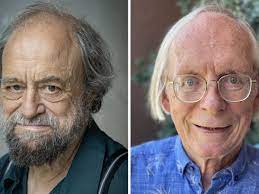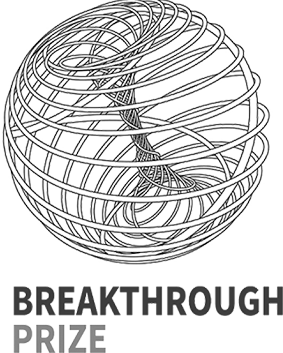BREAKTHROUGH PRIZE IN PHYSICS AND MATHEMATICS 2024:
Fundamental Physics
In fundamental physics, John Cardy and Alexander Zamolodchikov have contributed a lifetime of deep insights into quantum field theories, which describe not only particle physics, but emergent phenomena from magnetism and superconducting materials to the information content of black holes, and have also become a rich field of study in mathematics.

Mathematics
Mathematician Simon Brendle has contributed a series of remarkable leaps in differential geometry, a field that uses the tools of calculus to study curves, surfaces, and spaces. Many of his results concern the shape of surfaces, as well as manifolds in higher dimensions than those we experience in everyday life.
New Horizons in Physics Prize, New Horizons in Mathematics Prize, and Maryam Mirzakhani New Frontiers Prize 2024:
Early-career researchers across a range of fields are also recognized, including nine researchers making big strides in astronomy and cosmology. New Horizons in Physics Prizes recognize Michael Johnson and Alexandru Lupsasca, for their studies of photon rings – light trapped in orbit around black holes – and their work showing how they can be detected with future experiments; Laura M. Pérez, Paola Pinilla, Nienke van der Marel and Til Birnstiel, who discovered and characterized dust traps – regions of dynamic rings of gas and dust around stars where dust particles aggregate; and Mikhail Ivanov, Oliver Philcox and Marko Simonović, who studied the structure of the cosmos at the galactic scale, and found ways to use that knowledge to bring fresh insights to fundamental physics.
Physics and mathematics today are deeply interconnected, with discoveries from one discipline frequently lending powerful tools and concepts to the other. This year, the New Horizons in Mathematics Prize is awarded to Roland Bauerschmidt for his work in probability theory and the renormalization group – a concept that emerged from the quantum field theories studied by this year’s Breakthrough Prize in Fundamental Physics winners, and has become an important object of study in mathematics. Angkana Rüland is honored for work also touching on ideas derived from physics, such as transitions between states of matter, which are now studied in mathematical fields including analysis, the branch of pure mathematics that emerged from calculus. And Michael Groechenig receives the Prize for his insights into arithmetic geometry.
For work in algebraic geometry, Hannah Larson wins the Maryam Mirzakhani New Frontiers Prize; alongside Laura Monk for her discoveries about hyperbolic surfaces; and Mayuko Yamashita, for contributions to mathematical physics and index theory.
